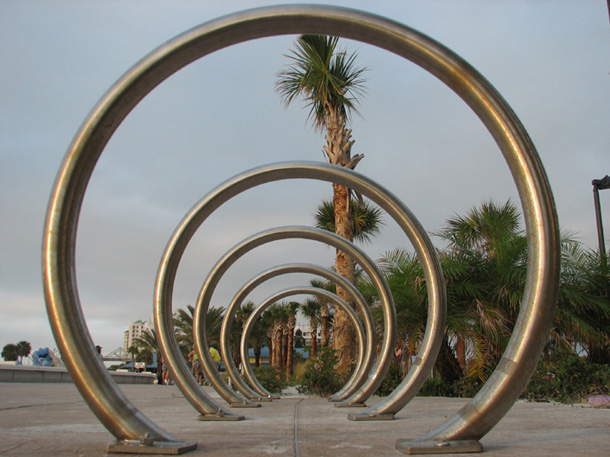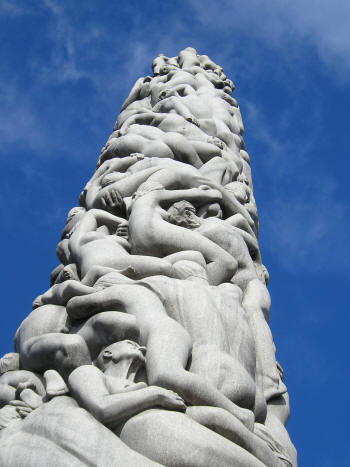A very likable animated character from the end of the Soviet era has been ingrained in my memory. This certain character was a rabbit who had been startled in his sleep, causing him to raise panic among inhabitants of the woods – „The sky is falling down!“ was his main message. I will try to muse a bit on the topic of what happens when we meet hard times.
Europe has faced several finance crisis in past 100 years
I remember how underbids were made in construction during the second half of the 90s in hopes that the additional work at the site would make the whole project come out ahead. The last crisis might still not be over, but luckily for us, it began with the cooling of the real estate and construction markets. Any other scenario would have hurt us much more.
What helps an entrepreneur through times likes these? Why do some fold and others learn? Why do some get rich and others poor? The reality is that there are more questions than there are answers. It is quite possible that financial crises are intentionally produced in order to “redistribute the wealth”. If so, then these same people behind the schemes are likely to be the ones to encourage people to consume more and live beyond their means.
It seems that patterns do reoccur – a divinely beautiful investment market and then a disaster. As if someone was behind the wheel, steering. All the entrepreneurs that survived the 1930’s crisis in Europe have passed away, there is no one left to warn us. All that remains are their memoirs.
What I’m really talking about is peoples’ fates. A well-known European businessman committed suicide at the end of 2008 by jumping in front of a speeding train. A speculated cause for such a step in his life was risking large sums on the stock market and not wanting to suffer the consequences or face the shareholders.
A young person hung himself out of desperation in debt. There was more to the story, however – this young man had surrounded himself with friends that possessed beautiful and expensive things. He wanted to keep up, but compensated by living in ever-growing debt.
In contrast, I know a young person whose business did not go the desired direction, he owed larger sums to banks and people, but managed to pull through.
Why are you in business?
In all seriousness, why do you own a business or plan to start one?
- Is it to make your own decisions and hopefully better ones than your superiors today?
You might make more wrong choices in your own business and end up not being much better than your boss. - Is it to have more free time while managing your own business? It is highly likely that 40 hours a week will not be enough.
- Is it because you have an excellent idea in need of realization? It is often said in the start-up community that there are always many more ideas than people that carry them out with discipline.
- Is it to acquire a big house and a fancy car? Those are actually elementary things, but what happens when you have to return them to the bank that allowed you to have them? Will it break you?
- Is it to retire early? It is possible that a single business will not achieve this. Are you ready to start over again?
Naturally there are many more motives for starting a business. I am an entrepreneur, because I like to put in an effort and learn with enterprising people.

What happens if/when you achieve your goal?
It is a common understanding that a goal must be measurable, only then is it achievable. I think of goals as beacons. It can be difficult to see a beacon when steering a boat in an archipelago/dense group of islands, but once I get a clear sight, I can correct my course again. Without beacons I would most likely end up going in circles around the islands.
But what happens when you actually reach your goal? One of my friends, a quite entrepreneurial lady, described the situation as follows: “I sold a chain of grocery stores that had been my only activity for 10 years and then rested in a hammock. How long are you going to stay in a hammock? I started working with a non-profit organization for the purpose of making our world a better place.”
An acquaintance of mine sailed the oceans alone on a sailboat. When he reached the Assor islands, he set a new goal- theBermudaIslands. For him, the important part was not the goal, but the ride itself. It was a time set aside for him. His wife visited him on theGrand Caymanislands.
I have had to change and adjust my goals. I have started to enjoy the lessons and to enjoy the process more. Just like the man sailing across theAtlantic Oceanmy priority was to reach my end goal of success. I have since adopted a holistic approach that embraces a chain of goals through the process.

What to learn from Nature?
There is a massive amount to be learned from the world around us. A great example is the efficiency of predators, a Lynx for example, cannot allow himself to fail in catching her prey during a certain time. For this reason the big cat always trails along a herd of deer, yet it cannot kill the whole herd, or it would most likely not witness a new spring.
Another example is deer that feed on hay put aside for them by wood wards – the deer avoid eating snow to quench their thirst, because obtaining the liquid from snow is more costly in terms of energy than the nutritional value of hay. It is purely calculated activity. Winter in the forest is like an economic crisis for you and me. Resources are scarce and conditions are taken to the extreme. Survival is key.
My favorites are naturally beavers. Let us start out, however, with establishing some facts – beavers do not eat fish and do not possess pearly white teeth. Beavers stash fresh branches near their dam, hiding them in underwater eating places for cold winter days. Why do they do this? Why do they not go into the woods during winter to amend their supply?
The answer is that it is too dangerous to move outside of the water during winter. The beavers do not have enemies under water, thus they continually build dams to raise the water level to a height good for swimming. Chewing on pieces of wood on riverbanks would cause his distinct smell to spread far into the woods, with no easy escape route when caught by surprise.
This is how beavers have taught their cubs for thousands of years – store away branches all autumn, as to avoid wandering about during winter. A local woodsman showed me a stream that was cleared out with heavy machinery during late fall. All the dams and pieces of branches had been cleaned out. For one family of beavers, this was a disaster they did not see coming and could do nothing about.
In spring you could see tracks on the banks of the cleaned out stream like someone had been snowboarding, one could assume that the beavers made it through winter. The woodsman marked that it should have been the duty of man here to catch the beavers before winter and not let them suffer.

How large should your reserve be?
The beavers know they have to survive winter, which is the exact extent of their reserve. Many who do business keep a reserve good for 6 to 12 months. This means that if they have no income for a year, all their bills will still be paid. One of my mentors taught me never to lease an expensive car because it means a lot of money every month, it is better to buy a car once. Cheaper cars, however, should be leased by the bunch.
The same man recommended an approach where your rental property is split in two – half are mortgage-free, half are not, in tougher times this means your property basically pays for itself, one half covering the other. Obviously there are many approaches here, but I believe in simplicity – the simpler it is, the more truthful it sounds – a layman’s approach to business advice.
An interesting tendency I have noticed is that when people struggle with making their monthly loan payments, they act as if their mind has been paralyzed. Some claim that higher expenses demand them to push forward harder, but in reality their brain focuses on simply making the payment. Instead, they could release their mind to new opportunities and challenges.
Is there a way to avoid global crises?
I actually believe that an individual, his state and economic unit are bound to global decisions to an extent that disables them from withstanding crises. I remember the unfinished skyscrapers in Bangkok that reminded me of giraffe skeletons – the Asian boom had just faded during the turn of the millennium. Before this it was quite common in Hollywoodmovies that a bunch of Japanese businessmen wanted to acquire a U.S .company, today these buyers are mostly Chinese and Brazilian.
The end of the Asian boom fell in the same time slot as the end of dot.com-ers. It is quite possible that there were strong connections there. Local level problems are mixed with problems halfway around the globe. Natural disasters or the normal function of nature change the course of economy. A tsunami and earthquake in Japan significantly weakened the country’s economic stance.
The volcanic eruption in Iceland definitely left its mark on the flying market. Mediterranean governments struggle to provide well-being for their citizens. People are on the streets. This affects not only the Eurozone, but the entire world. Likewise the sustainability of the U.S. and China influences the whole of mankind.
Even inDubai, where it seemed that the economic crisis hasn’t even slowed their rate of construction, the tallest building in the world was renamed for financial reasons. Burj Dubai (at 830m tall) was renamed to Burj Khalifa because theDubaiemirate ran out of money and his neighbor stepped in, the only condition being a new name. Even their money and oil will run out eventually.

What happens when you go broke?
A man named Gunnar Aarma was in a working camp in the far east. His only goal for the day was survival. The hardships he went through are unimaginable.
Diary style biographies are the worst, there is no beautifying that can be done – you can read what really happened. Another good example is an Estonian shipping entrepreneur called Alfred Kalm, who also built the house that the U.S. embassy in Tallinn resides in.
I believe that the fact that we cannot foresee the future is not a misfortune but a blessing. Would we be so positive and progressing? David Vseviov, an Estonian historian, has said that history has sadly brought us only wars and conflicts. A good measuring stick is the number of churches that remain today and that have been destroyed in wars – these numbers differ substantially!

On whom and what do you rely?
There is a sculpture in Vigeland park, Oslo, that I particularly enjoy. It depicts a scene where a mass of people climb on top of each other, reaching for the heights. A common metaphor for a career is a ladder or a staircase, where the steps are other people – you should treat them well, otherwise the steps might not carry you on the way down.
Do your loved ones support you, when the going gets tough? Have you created the conditions for that? It is often the support system of an entrepreneur where he can go and simply spill his guts free of worry and recharge. Even here the assumption is that all the joys are shared with the same people, because they will also grow weary of listening to problems.
Who are your friends? Do you want to help your own friends? A friend of mine defined friendship thus: “a friend is a person you can call anytime, even at midnight, to come help you tow your car”. Are your friends only there when you need something from them? Do you want such friends?
What keeps me from going insane under pressure? Is it something deep inside me? In the olden days, people used to say – if god wills it, I will be there. Today we simply say that I’ll be there. There is difference lies not in the means of getting somewhere but the focus of our view of the world – its center has become “me”.
I believe that it is not by chance that religion has played an important role in human culture through the ages. Through time, however, religion has been used as an attribute of power.
Urbanization has further driven man from nature and his maker. Now man questions the necessity of faith, and with good reason – why would he need it if he can be fine without?
Actually, there are some pretty good lessons in ye old holy books. The bible for example, contains a section named Proverbs, a simply styled book, filled with the old teaching the young about living life and ethics.
Many questions, few answers, Unfortunately I cannot supply you with a manual of what to do. Everyone must face their own questions and find their own way. A good result is an entrepreneur taking some time off, separates from the noise and returns to work stronger than before.
Please give me feedback to these thoughts. Did something irritate or perhaps spark an interest?
